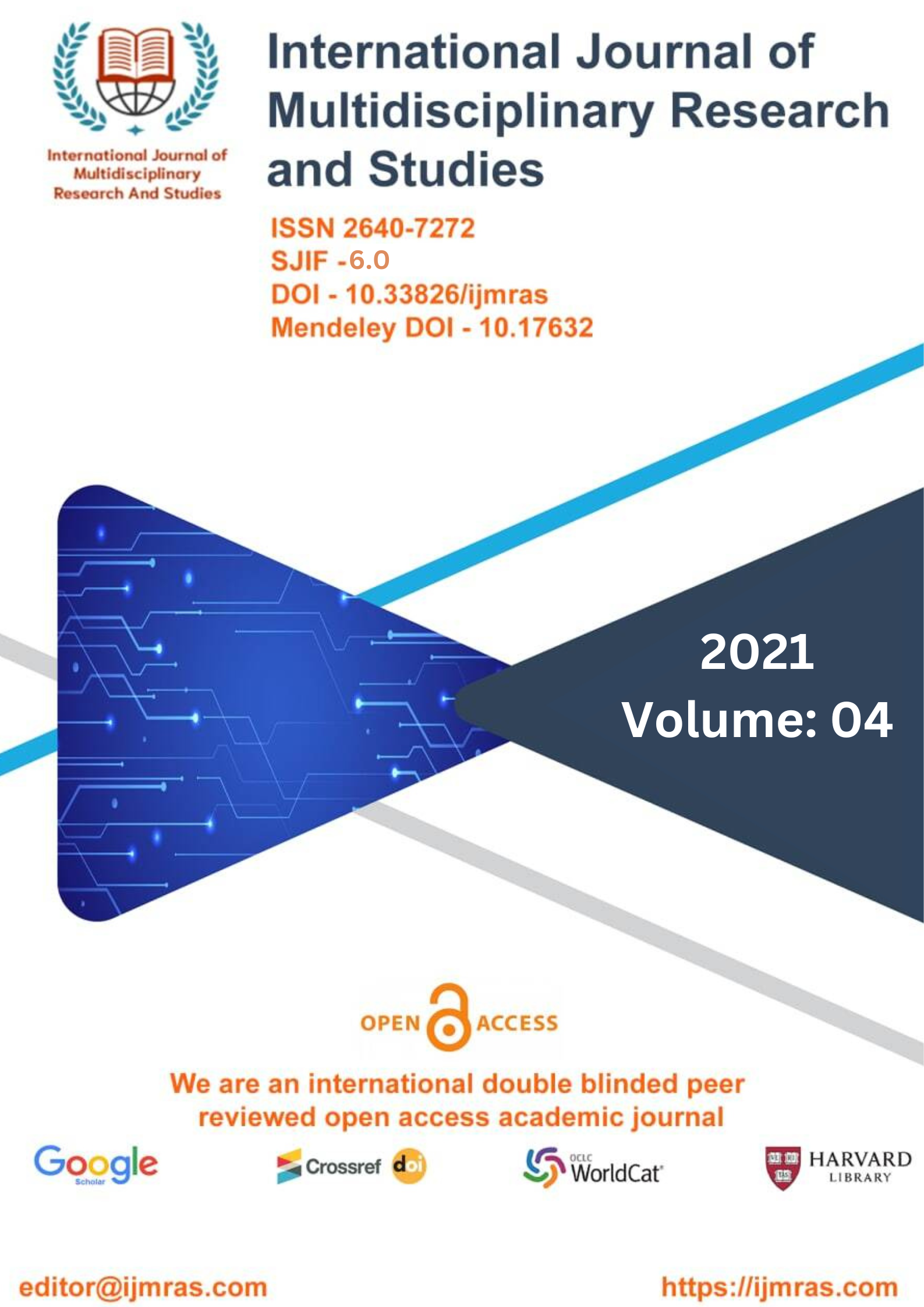STUDY ON POET ARMANDO MENEZES RESEARCH

Abstract
One may consider Indian literature written in English to be a type of by-product. For about two hundred years, English dominion was imposed on India. Not only did they leave us with a western way of life and a functioning style, but they also left us with a number of cultural influences. The consistent use of English as the language of communication is one of them. After the British Raj had been firmly established, the English had the intention of establishing schools and institutions where English would be the primary language of instruction. After Queen Victoria established her monarchy over the colonies, including India, this led to the establishment of higher education institutions in the form of universities in the cities of Calcutta, Bombay, and Madras. As a result of Lord William Bentinck's benigh rule, the English language had already been established as India's official language for purposes like communication, education, and government. In this context, Lord Macaulay's Minitue is an interesting book to read.
Keywords
official language, communication, Queen VictoriaHow to Cite
References
Sivaraman, "The Philosophy of Sarojini Naidu's Poetry," Calcutta Review, November-December, 1932.
The Golden Threshold London, Heineraann, 1905.
The Temple of Freedom. Madras: The Cambridge Press, 1921.
Abbas, K.A. Sarojini Naidu. Bombay: Bharatiya Vidya Bhavan, 1980.
Aiyyar, P.A.S. Sarojini Devi. Cultural Books (7), Madras: Swatantra Press, 1956
Bhatnagar, Ram Ratan. Sarojini Naidu: The Poet of a Nation. Allahabad: Kitab Mahal, 1947.
Dwivedi, A.N. Sarojini Naidu and Her Poetry. Allahabad: Kitab Mahal, 1981.
Gupta, A«W. & Gupta, Satish. Sarojini Naidu: A Critical Study, Bareilly, Prakash Book Depot, 1977.
Khan, Izzat Yar, Sarojini Naidu: The Poet. New Delhi: S.Chand& Company Ltd., 1983.
Prasad, Dr. Deobrata. Sarojini Naidu And Her Arts of Poetry. Delhi: Capital Publishing House, 1988.
Rajyalakshmi, P.V. The Lyric Spring: A Study of the Poetry of Sarojini Naidu. New Delhi: Abhinav Publications, 1977.
Ahuja, Sahib Singh. "The Humour of Mrs. Sarojini Naidu," The Modern Review, February, 1962.
The Golden Breath, Studies In the Five Poets of the New India. London, John Murray, 1933.
Bhatnagar, Arun, "The Sceptred Flute of Indian Politics," The Hindustan Times Weekly, Sunday, February, 18. 1979.
Chattopadhyaya, Kamla Devi, "Sarojini Naidu: A Tribute," The Hindustan Review, April, 1949.
Dunn, T.O.D. Bengali Writers of English Verse. Calcutta; Thacker Spink, 1918.
Dustoor, P.E. "Flutist with the Sceptred Flute," Christ Church College Magazine, Kanpur, 1952.
Dwivedi, A.N. "Toru Dutt and Sarojini Naidu," Commonwealth Quarterly, 3, No.9, December, 1978.
Meharally, Yusuf. "Sarojini Naidu," The Hindustan Review, April, 1949.
Mehrotra, K.K. ed. Essays and Studies, The University of Allahabad, Allahabad: Lokbharti Publication, 1970.
Naik, M.K. A History of Indian English Literature. Delhi: Sahitya Akademi, 1982.
License
Copyright (c) 2021 Prabhash Kumar

This work is licensed under a Creative Commons Attribution 4.0 International License.
Individual articles are published Open Access under the Creative Commons Licence: CC-BY 4.0.




